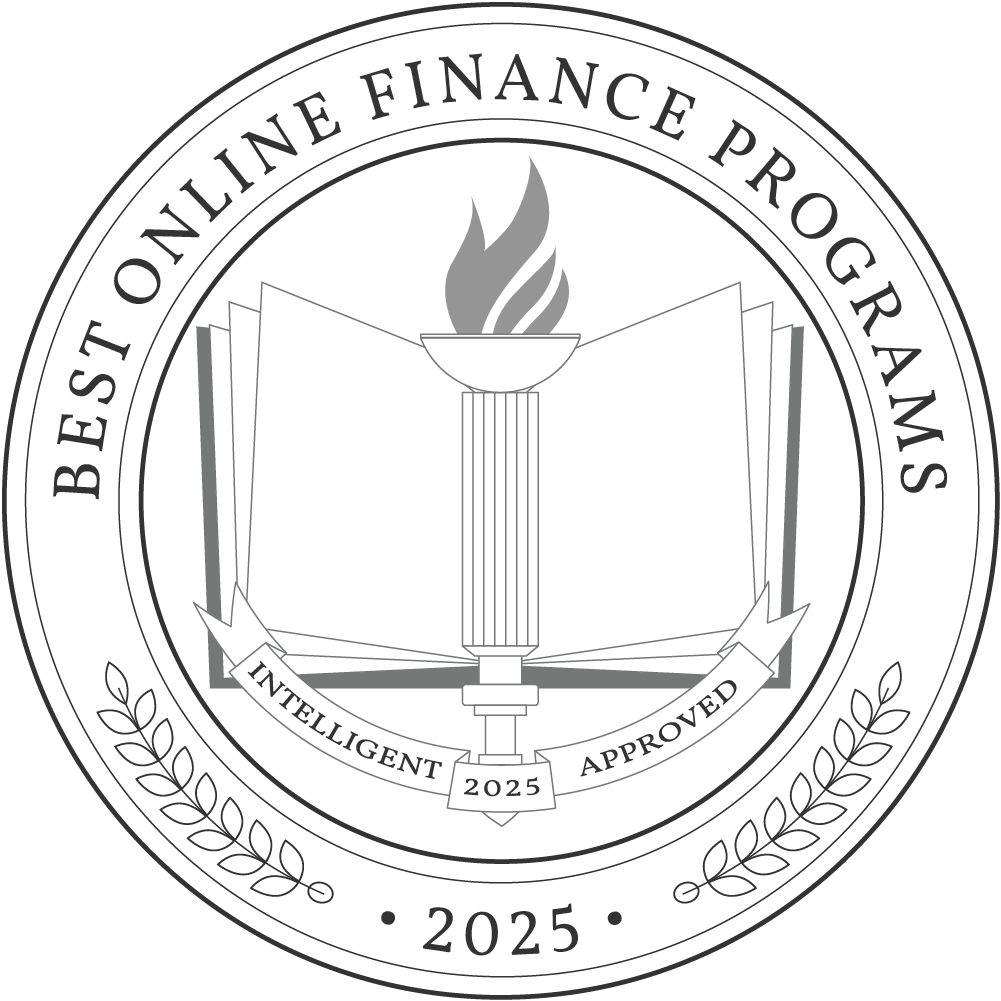For money-minded individuals, a degree in finance can provide the necessary education for various in-demand roles such as financial analyst, financial examiner, or even chief financial officer. The first step is choosing which online finance degree program suits you, which can be challenging, given the number of available options. To help narrow the field, Intelligent.com reviewed dozens of online finance degree programs. We evaluated programs based on their retention and graduation rates, cost, faculty profile, rankings, and more and created this list of the best online finance degree programs for [year].
Additionally, Michelle Pickett, the director of Northern Illinois University’s Academic Advising Center, answers many of students’ frequently asked questions about online finance degrees, including admissions requirements, specialization options, program cost and duration, and how to select an online finance degree program.
What You Can Expect From an Online Finance Degree Program
A bachelor’s degree in finance provides a broad foundation in the subject, helping students develop a well-rounded understanding of financial principles. Core coursework typically includes topics like financial accounting, managerial accounting, business law, business management, microeconomics, macroeconomics, and more.
Students can choose from several concentrations within finance, which can help them prepare for specific roles within the financial industry. Common finance concentrations include corporate finance, investment management, financial planning, risk management, and international finance.
At the bachelor’s level, students typically can choose between earning a Bachelor of Science (BS), Bachelor of Business Administration (BBA), or Bachelor of Science in Business Administration (BSBA). While each type of degree has specific curriculum requirements and theoretical approaches, all will give students the necessary knowledge to pursue a finance career.
Internships or other field experiences are common in finance degree programs. Online students should clarify with a program representative if internship requirements can be completed remotely or if on-site attendance is required.
Asynchronous and synchronous learning play a role in the flexibility of completing an online finance degree, and both options can be a good fit for different reasons. Asynchronous learning allows students to access course materials, lectures, and assignments at their own pace, making it suitable for those with full-time jobs or other commitments. Conversely, synchronous learning involves real-time interaction with instructors and fellow students through virtual platforms, offering a more structured and collaborative learning experience.
Potential courses you’ll take in an online finance degree program
- Financial Accounting: Provides an introduction to accounting, emphasizing how general-purpose financial statements communicate information about the business corporation’s performance and position for users external to management.
- Principles of Finance: Surveys the field of finance and provides the foundation for more advanced finance coursework. Topics include business and financial information sources, financial statement analysis, the time value of money, the nature and measurement of risk, financial institutions, investments, and corporate finance.
- Business Law: Studies the everyday legal problems encountered in business with emphasis on legal procedure, contracts, agency, employment law, business organizations, and torts and cases relating to these and other areas.
- Managerial Accounting: Introduces a business-management approach to the development and use of accounting information, with topics including cost behavior, cost analysis, profit planning, and control measures.
Why Trust Us
The Intelligent.com Higher Education Team is dedicated to providing students with independent, equitable school and program rankings and well-researched resources. Our expert-driven articles cover topics related to online colleges and programs, paying for school, and career outlooks. We use data from the U.S. Department of Education’s College Scorecard, the National Center for Education Statistics, and other reputable educational and professional organizations. Our academic advisory team reviews content and verifies accuracy throughout the year for the most current information. Partnerships do not influence rankings or editorial decisions.
- Analyzed over 2,000 national, accredited, and nonprofit colleges and universities
- 800+ rankings pages are reviewed and updated yearly
- Content is informed by reputable sources, surveys, and interviews with academic advisors and other experts
- Over 100 data points are reviewed for accuracy and quality throughout the year, including sources
How we rank schools
Our list features the best online Finance degree programs at top colleges nationwide. Each school featured is a nonprofit, accredited institution — either public or private — with a high standard of academic quality for post-secondary institutions.
We evaluated each school’s program on tuition costs, admission, retention and graduation rates, faculty, reputation, and the student resources provided for online students. We collected data from trusted sources like the National Center for Education Statistics, individual school and program websites, school admissions counselors, and other data sources. Then, we calculated the Intelligent Score on a scale of 0 to 100 based on the following criterion:
Academic Quality:
- Admission rate versus enrollment rate
- Retention rate of students who return after year one
- Accreditation status (regional and programmatic)
- Nonprofit status, both private and public institutions
Graduation Rate
- Overall graduation rate
- Total number of currently enrolled students, including diversity metrics
- Student-to-faculty ratio
Cost and ROI
- In-state and out-of-state per-credit tuition rates and fees
- Required credits to graduate
- Earning potential after graduation
- Availability of federal student loans, scholarships, and other financial aid options
Student Resources
- Available student services for online-only and hybrid programs
- On-campus amenities like tutoring centers and the number of libraries
Read more about our ranking methodology.
The Top 43 Online Finance Degree Programs
FiltersInstitution Type
Status
- Intelligent Score
- Alphabetically By University Name
- Acceptance Rate
- Enrollment
- In-state Graduate Tuition
- Out-of-state Graduate Tuition
- In-state Undergraduate Tuition
- Out-of-state Undergraduate Tuition

Florida International University
Intelligent Score: 99.27In-state: $4,721
Out-of-state: $16,529
In-state: $8,912
Out-of-state: $8,912
SAT: 1110-1260
ACT: 23-29
In-State: $235
Out-of-State: $648
Online
Southern Association of Colleges and Schools Commission on Colleges
120

Oklahoma State University
Intelligent Score: 99.08In-state: $5,357
Out-of-state: $20,877
In-state: $5,531
Out-of-state: $5,531
SAT: 1020-1250
ACT: 21-28
Resident: $180
Non-Resident: $697
Online
Association to Advance Collegiate Schools of Business
120

University of Wisconsin Whitewater
Intelligent Score: 98.83In-state: $9,273
Out-of-state: $37,161
In-state: $10,728
Out-of-state: $10,728
SAT: 1260-1460
ACT: 27-32
$395
Online
Association to Advance Collegiate Schools of Business
120
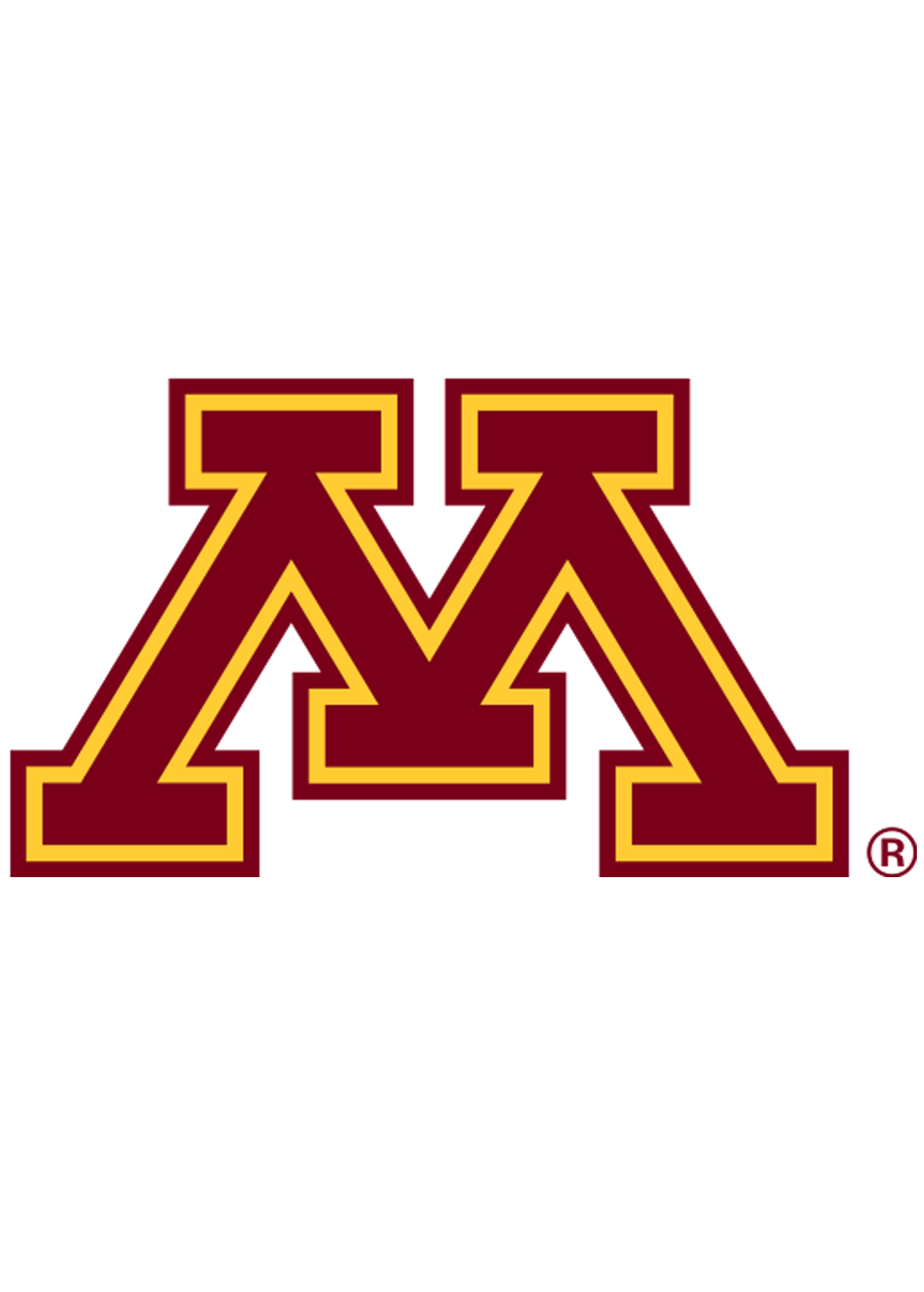
University of Minnesota
Intelligent Score: 98.43In-state: $13,318
Out-of-state: $31,616
In-state: $17,580
Out-of-state: $17,580
SAT: 1240-1460
ACT: 25-31
$441
Online
Higher Learning Commission
120

Missouri State University
Intelligent Score: 96.49In-state: $6,840
Out-of-state: $15,510
In-state: $5,436
Out-of-state: $5,436
SAT: 1020-1220
ACT: 21-27
$279
Online
Higher Learning Commission
120
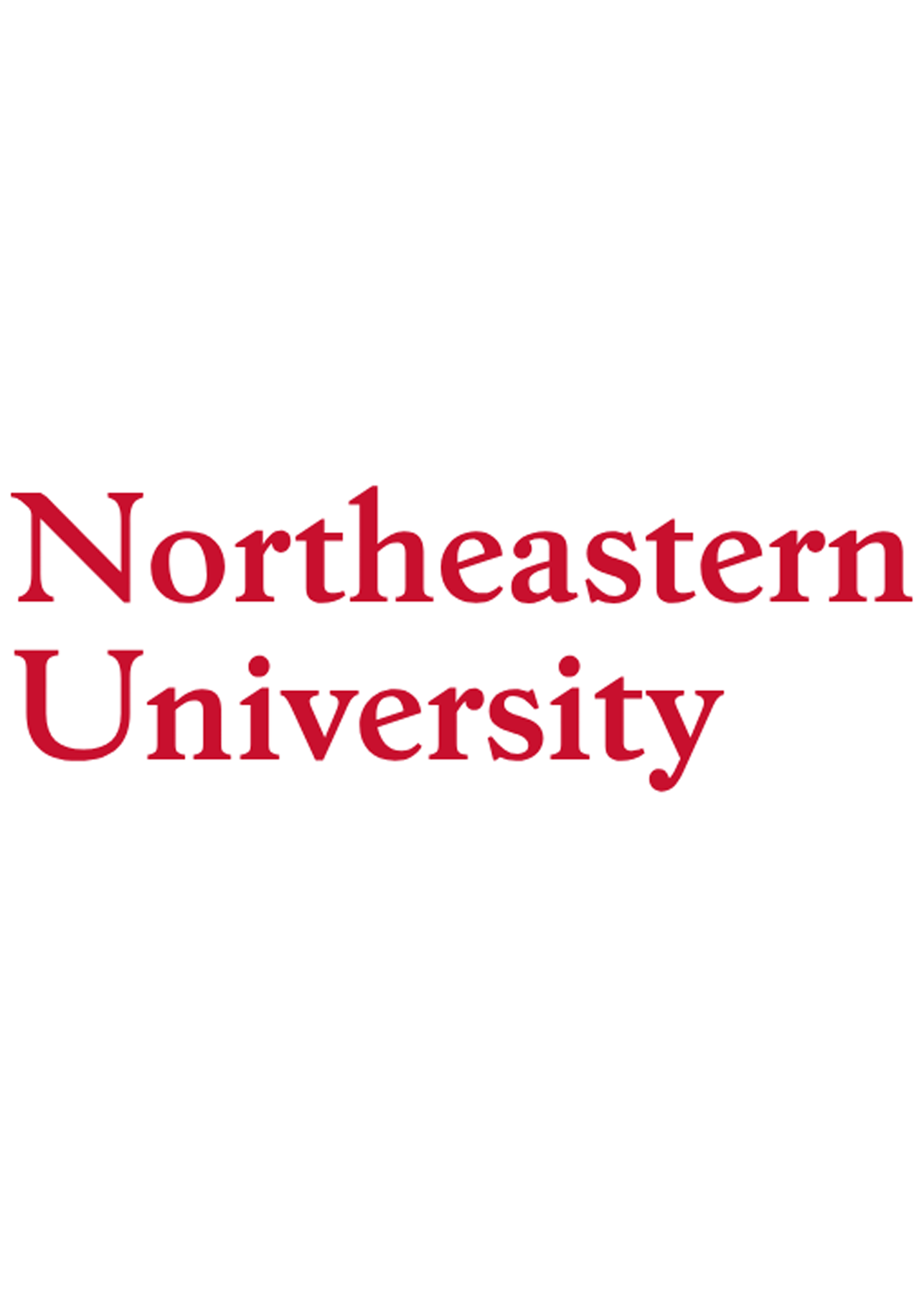
Northeastern University
Intelligent Score: 95.67In-state: $54,360
Out-of-state: $54,360
In-state: $25,264
Out-of-state: $25,264
SAT: 1410-1540
ACT: 33-35
$541
Online
Association to Advance Collegiate Schools of Business
120

Southern New Hampshire University
Intelligent Score: 94.95In-state: $9,600
Out-of-state: $9,600
In-state: $18,810
Out-of-state: $18,810
SAT: N/A
ACT: N/A
$330
Online
Accreditation Council for Business Schools and Programs
120

University of Alabama at Birmingham
Intelligent Score: 94.89In-state: $10,780
Out-of-state: $30,250
In-state: $10,780
Out-of-state: $10,780
SAT: 1070-1330
ACT: 23-31
$433 - $667
Online
Association to Advance Collegiate Schools of Business
120

Oregon State University
Intelligent Score: 94.09In-state: $9,846
Out-of-state: $29,445
In-state: $13,257
Out-of-state: $13,257
SAT: 1080-1310
ACT: 21-29
$375
Online
Association to Advance Collegiate Schools of Business
180

Old Dominion University
Intelligent Score: 93.7In-state: $7,029
Out-of-state: $26,664
In-state: $10,207
Out-of-state: $10,207
SAT: 960-1170
ACT: 18-25
In-State: $393
Out-of-State: $426
Online
Southern Association of Colleges and Schools Commission on Colleges
120

Texas A&M University-Central Texas
Intelligent Score: 93.58In-state: $8,395
Out-of-state: $36,849
In-state: $6,775
Out-of-state: $6,775
SAT: 1160-1380
ACT: 26-32
Resident: $260
Non-Resident: $668
Online, On-Campus
Association to Advance Collegiate Schools of Business
120

UMass Amherst
Intelligent Score: 93.53In-state: $15,791
Out-of-state: $35,779
In-state: $14,014
Out-of-state: $14,014
SAT: 1200-1390
ACT: 27-32
$450
Online
Association to Advance Collegiate Schools of Business
120
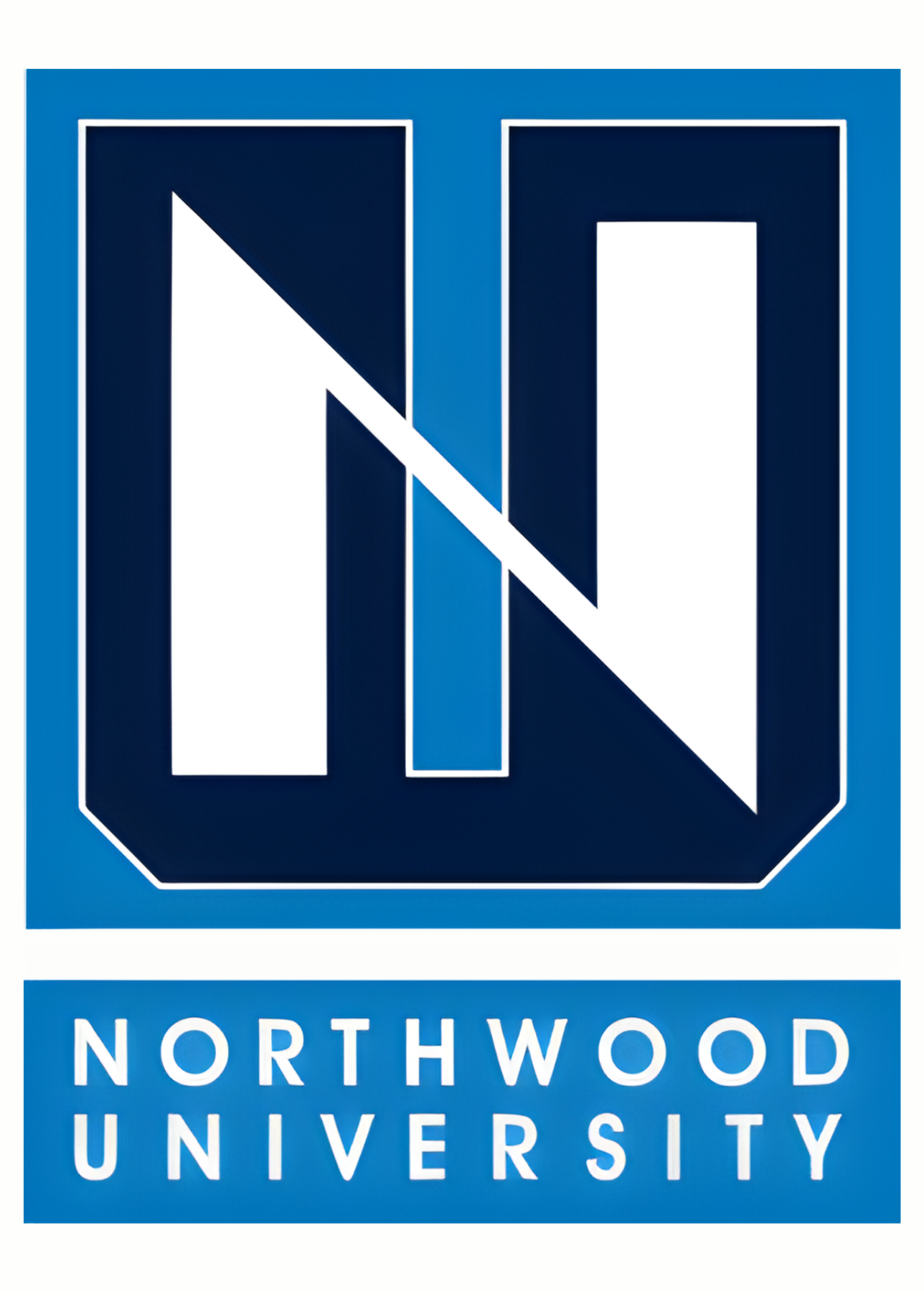
Northwood University
Intelligent Score: 92.07In-state: $28,020
Out-of-state: $28,020
In-state: $37,080
Out-of-state: $37,080
SAT: 990-1180
ACT: 19-25
$485
Online, On-Campus
Higher Learning Commission
120

PennState World Campus
Intelligent Score: 91.65In-state: $15,025
Out-of-state: $24,413
In-state: $22,464
Out-of-state: $22,464
SAT: 1070-1300
ACT: 24-29
$626 - $671
Online
Association to Advance Collegiate Schools of Business
120

Liberty University
Intelligent Score: 91.4In-state: $14,791
Out-of-state: $14,791
In-state: $7,935
Out-of-state: $7,935
SAT: 1040-1250
ACT: 21-29
$390
Online
Accreditation Council for Business Schools and Programs
120

Western Governors University
Intelligent Score: 91.27In-state: $6,380
Out-of-state: $6,380
In-state: $7,500
Out-of-state: $7,500
SAT: N/A
ACT: N/A
$238
Online
Accreditation Council for Business Schools and Programs
120
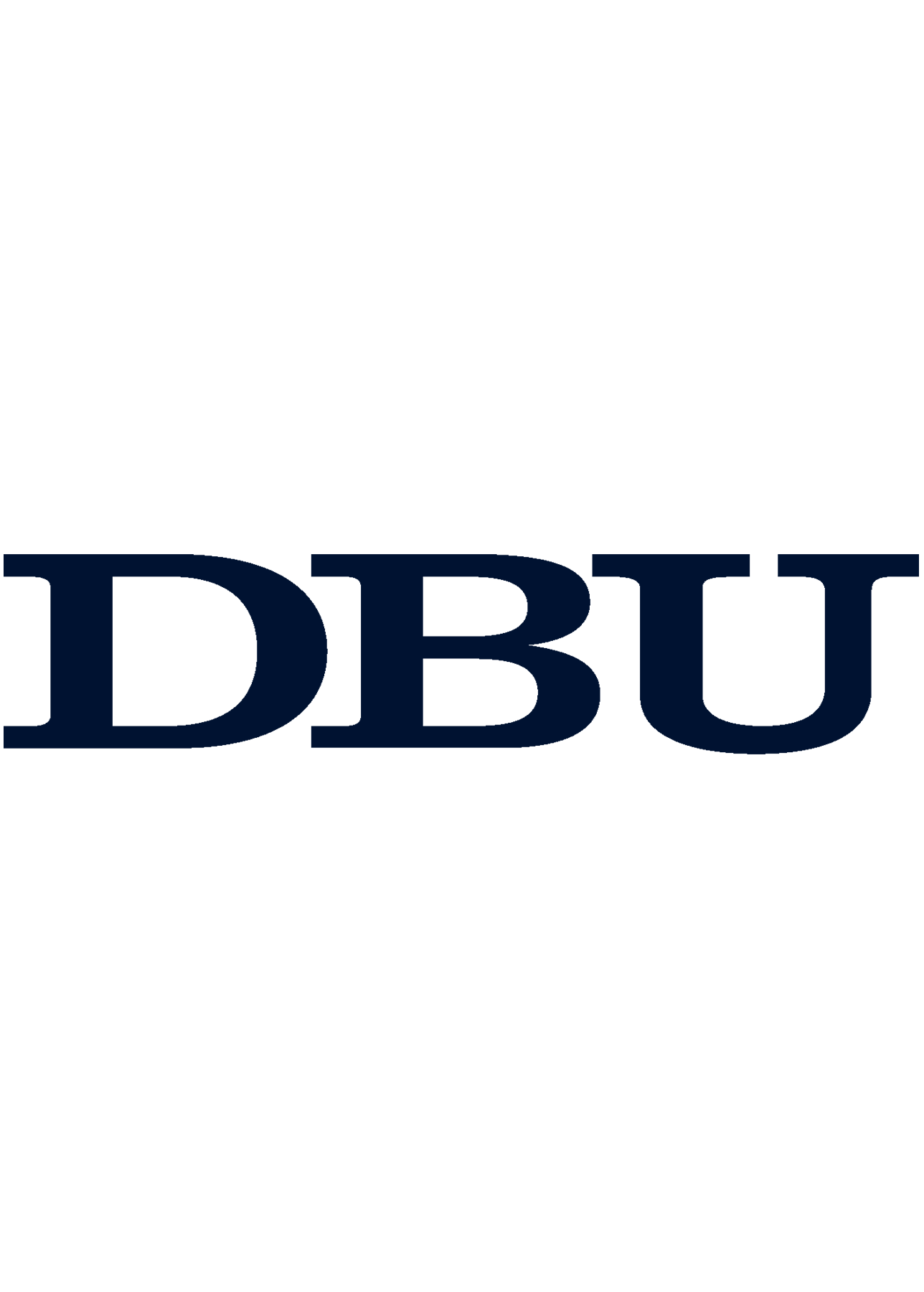
Dallas Baptist University
Intelligent Score: 90.76In-state: $30,690
Out-of-state: $30,690
In-state: $18,954
Out-of-state: $18,954
SAT: 980-1200
ACT: 20-27
$1,278
Online, On-Campus, Hybrid
Southern Association of Colleges and Schools Commission on Colleges
120

University of Maryland Global Campus
Intelligent Score: 90.16In-state: $8,824
Out-of-state: $34,936
In-state: $13,158
Out-of-state: $13,158
SAT: 1270-1480
ACT: 30-34
In-State: $318
Out-of-State: $499
Online
Middle States Commission on Higher Education
120
How to Choose an Online Finance Degree Program
Clarify your goals and priorities
Choosing the right degree is a pivotal decision that shapes your future. When considering a degree in finance, it is crucial to ensure that it aligns with your aspirations and interests.
Start by exploring the dynamic world of finance, its various specializations, and potential career paths, and assess your affinity for working with numbers, analytical thinking, and problem-solving. Consider engaging in informational interviews, job shadowing, or internships to gain practical insights into the field.
Additionally, consider your aptitude for working in a fast-paced and competitive environment. Many fields within finance are dynamic and subject to market volatility, making this an ideal area for savvy decision-makers who thrive under pressure.
Consider your logistical needs as well. An asynchronous program may be the best option if you need maximum flexibility. However, if you learn best through interaction with faculty and classmates, consider a synchronous program with regular class meetings.
Research schools and programs
Once you’re sure that a degree in finance is the right choice, it’s time to research schools and programs to ensure you find the best fit for your educational and career goals.
Begin by leveraging online resources such as university websites, program descriptions, and rankings from reputable sources. Dive deeper by exploring curriculum details, faculty profiles, and available specializations within finance programs. Look for schools with strong industry connections, guest lectures, or internship opportunities that can enhance your practical skills and networking prospects.
Also, confirm the accreditation status of the schools and programs you’re considering. Seek out colleges with regional accreditation from a recognized accrediting body to ensure access to financial aid, future educational options, and job opportunities. At the programmatic level, finance degree programs can be accredited by agencies such as the Association to Advance Collegiate Schools of Business (AACSB) or the Accreditation Council for Business Schools and Programs (ACBSP).
If your schedule allows, consider attending virtual or in-person information sessions and speaking with current students or alums to gather additional insight before making a final decision. By considering these factors and gathering as much information as possible, you can feel confident about attending a specific program.
Prepare for tests and applications
Preparing for tests and applications requires a strategic approach to showcase your potential and stand out amongst other applicants.
First, research the application requirements and deadlines for each program. Prepare well in advance by studying for standardized tests like the SAT or ACT. Take advantage of study materials, practice tests, and online resources to sharpen your skills and familiarize yourself with the test format.
Cultivate your personal statement or application essay by highlighting your passion for finance, relevant experiences, and future goals. Seek recommendations from professors, employers, or mentors who can speak to your abilities and character.
Lastly, organize your application materials, proofread them thoroughly, and submit them before the deadline. With careful preparation and a compelling application, you can increase your chances of securing admission to your desired finance degree programs and set yourself on a path to success.
Admissions requirements for a finance degree can vary depending on the institution and program level, but most have set standard requirements that are similar across the board. For undergraduate degrees, this includes:
- Completed application and required fees
- Official transcripts from high school and any previously attended colleges
- Personal statement
- Letter(s) of recommendation
- Resume or CV
- SAT or ACT scores
Select your program
Now that you have completed the initial steps of research, preparation, and determining your financial options, selecting your financial degree program is the final step toward your future career. Evaluate how well each program aligns with your career goals and personal interests, and choose the program that best resonates with your aspirations, offers valuable resources, and can set you on the path to financial success.
Determine how you’ll pay for your degree
As you research schools and programs, gather information about tuition, fees, and available financial aid. This information is usually available on a school’s website, or you can contact their financial aid office for more information.
Begin by exploring scholarship opportunities specific to your field of study and general scholarships based on merit, financial need, or specific criteria. Watch for grants and fellowships from organizations, institutions, or government agencies that align with your interests and goals. For need-based aid, including student loans and work-study funding, you’ll have to complete the Free Application for Federal Student Aid (FAFSA).
Students planning on working while earning their finance degree should inquire with their employer about available tuition assistance benefits, which can help offset some of the costs of higher education. Veterans and active-duty military service members can check with their schools about military tuition discounts and GI Bill benefits.
What Can I Do With an Online Finance Degree?
With a finance degree at the undergraduate level, students gain a firm footing in financial concepts and techniques, according to Michelle Pickett, the director of the Academic Advising Center at Northern Illinois University.
“Individuals with degrees in finance typically are looking to learn how to best manage and grow money for individuals, companies, and organizations,” Pickett says. “Finance majors develop skills in risk management, investment strategies, data analytics, and soft skills that are important when interacting with individuals.” Career paths include becoming financial analysts, budget analysts, account managers, and insurance underwriters.
A finance degree opens up even more advanced and specialized opportunities at the graduate level. Says Pickett, “Many of these positions will require a bachelor’s degree in finance; however, other careers like equity trader or investment brokering may require a master’s degree or additional experience/training beyond the bachelor’s degree.” With advanced knowledge and skills, students can assume leadership roles in financial institutions, manage investment portfolios, conduct in-depth economic research, or advise multinational corporations on complex financial matters.
Students interested in analyzing financial information should also consider earning a bachelor’s or master’s degree in accounting, as this may be a better fit for your personal interests and career goals.
Career outlook
- Financial analysts: Assess investment opportunities, conduct economic research, analyze financial data, and provide recommendations to assist businesses and individuals in making informed financial decisions.
- Median annual salary: $99,890
- Projected employment growth (through 2032): 8%
- New jobs projected: 27,400 per year
- Investment bankers: Help companies raise capital, facilitate mergers and acquisitions, provide financial advisory services, and work with clients to structure deals, analyze financial data, and negotiate transactions.
- Median annual salary: $76,900
- Projected employment growth (through 2032): 7%
- New jobs projected: 40,100 per year
- Personal financial advisors: Work closely with individuals and families to develop comprehensive financial plans, including budgeting, investment strategies, retirement planning, tax planning, and risk management.
- Median annual salary: $99,580
- Projected employment growth (through 2032): 13%
- New jobs projected: 25,600 per year
Online Finance Degree Program Frequently Asked Questions
How much does an online finance degree program cost?
The cost of a finance degree can vary depending on the degree level, the institution, and the student’s residency status. For the most accurate information about a program’s cost, speak to a financial aid counselor at the schools you’re considering.
According to the National Center for Education Statistics (NCES), the average annual tuition for four-year degree programs during the 2022-23 academic year was $9,750 at public colleges and $38,421 at private schools. Students attending public universities should note if the school charges different tuition rates for in-state and out-of-state students.
Enrollment status also influences the cost. Full-time students generally pay the full annual tuition, while part-time students pay per credit. Therefore, part-time enrollment may be more cost-effective for individuals balancing their education with other responsibilities, like parenting or a full-time job. However, overall program cost will likely remain the same.
Residency status is another crucial factor that can significantly impact how much you pay for your degree. In-state students often benefit from lower tuition rates at public institutions within their state, while out-of-state students may pay higher rates. The difference in cost between in-state or out-of-state tuition can be substantial, with out-of-state rates sometimes exceeding twice the in-state tuition.
How long does earning an online finance degree take?
“Most online bachelor’s in finance degree programs can be completed in four years, if a student is attending full-time, enrolling in approximately four classes over a 16-week semester,” Pickett says. However, this can vary depending on the program’s structure and the student’s course load. Before declaring their major, most universities require students to complete prerequisite mathematics, accounting, economics, and statistics courses. These courses must be college-level and are typically completed within the student’s first and second years at the institution.
A program’s learning format can also affect your completion time. “Online programs may offer synchronous or asynchronous class options,” Pickett says. “Asynchronous classes…are not offered during a specific day or time. Whereas synchronous courses are offered during a specific time when the instructor and other students are also online.” Both of these formats have their advantages. The flexibility of asynchronous learning may be best for students with full-time jobs or other significant responsibilities. At the same time, the collaborative environment of synchronous courses may work well for students who prefer more structure and support.
Is an online finance degree worth it?
A finance degree offers substantial benefits and is considered worth it for many people seeking a career in the financial industry. “An online degree in finance is a great option for those looking to further their education, increase their employment opportunities, or change their career,” Pickett says. “According to the Occupational Outlook Handbook, the job outlook for careers in finance is projected to grow faster than average for many occupations.”
Not only is demand high, but a degree in finance also has a promising return on investment (ROI). While tuition costs may vary, the potential financial rewards often outweigh the expenses. Many finance careers see a median income of $79,000 or more, nearly double the median for all occupations.
Moreover, a finance degree provides diverse transferable skills across industries. So, even if you were to get to the finish line and ultimately wanted to pursue a different line of work, you’d be able to find ample employment opportunities. The analytical, problem-solving, and critical thinking abilities developed during the program are highly valued in various fields, from banking and investment management to consulting and corporate finance.
Read More about Finance Degrees
Compare School Options
Related Degrees
- Sustainability
- Public Administration
- Graduate Certificate in Human Resources
- Business Administration
- Accounting
- Training and Development
- Hotel and Restaurant Management
- Small Business Management
- Emergency Management
- Management
